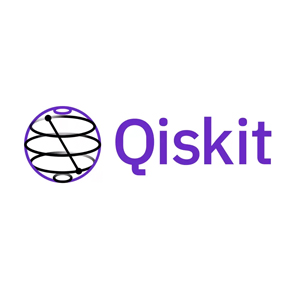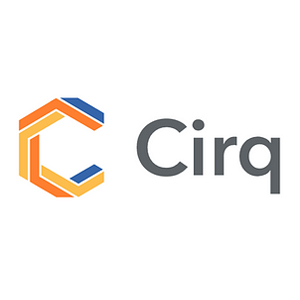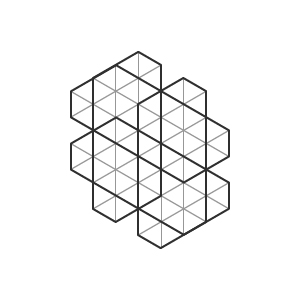Quantum Computing
Quantum computing is a rapidly advancing field of computing that harnesses the principles of quantum mechanics to perform calculations. Unlike classical computers, which use bits to represent information as 0s and 1s, quantum computers use quantum bits, or qubits, which can exist in multiple states simultaneously, thanks to a property called superposition. This ability allows quantum computers to simultaneously process and store a vast amount of information, enabling them to solve certain problems much faster than classical computers.
15+ Years
of Educational Excellence
Ranked #1
by Working Professional
24 Months
Program Duration
100% Campus
With Weekend class
Course Overview
Quantum computing holds the potential to revolutionize areas such as cryptography, optimization, material science, drug discovery, and more. It can solve complex problems that are practically infeasible for classical computers due to their exponential nature. However, quantum computing is still in its early stages of development, and practical, scalable quantum computers capable of outperforming classical computers for general-purpose tasks are not yet widely available.
Researchers and organizations around the world are actively working on building more powerful quantum computers while also grappling with challenges such as decoherence, error correction, and scalability.
Syllabus
A future-proof syllabus meticulously designed by industry experts and educationalists, comprising videos, texts, industry projects, live sessions, and assignments, is a comprehensive learning plan that will help you develop the required skill set and knowledge to secure a job that assures career growth.
Syllabus
Best-in-cltass content by leading faculty and industry leaders in the form of videos, cases, and projects.
- What is Quantum Computing?
- Quantum Mechanics
- Qubits and Quantum Memory
- Elementary Gates
- Classical Circuits
- Quantum Circuits
- Universality of Various Sets of Elementary Gates
- Quantum Parallelism
- Early Algorithms
- What is Simon’s Algorithm?
- Simon’s Problem
- Quantum Algorithm
- Classical Algorithms for Simon’s Problem
- Classical Discrete Fourier Transform
- Fast Fourier Transform
- Application: Multiplying Two Polynomials
- Quantum Fourier Transform
- Factoring
- Shor's Period-Finding Algorithm
- Continued Fractions
- Group Theory Reminder
- General Algorithm for Abelian HSP
- Non-Abelian QFT on Coset States
- Grover’s Algorithm
- Amplitude Amplification
- Application: Satisfiability
- Quantum Walk
- Applications
- Hamiltonians
- Methods of Hamiltonian Simulation
- Introduction to HHL Algorithm
- Linear System Problem
- HHL Algorithm for Linear Systems
- Improving HHL Algorithm Complexity
- Introduction
- Polynomial Method
- Quantum Adversary Method
- Introduction to Quantum Complexity Theory
- Classical and Quantum Complexity Classes
- Classically Simulating Quantum Computers in Polynomial Space
- Mixed States and General Measurements
- Quantum Encodings and Their Limits
- Lower Bounds on Locally Decodable Codes
- Classical Communication Complexity
- Quantum Question
- Quantum Non-Locality
- CHSH: Clauser-Horne-Shimony-Holt
- Magic Square Game
- Quantum Key Distribution
- Reduced Density Matrices and Schmidt Decomposition
- Impossibility of Perfect Bit Commitment
- Introduction
- Classical Error-Correction
- Quantum Errors
- Fault-Tolerant Quantum Computation
- Concatenated Codes and Threshold Theorem
- Freshers,
- Engineers,
- Domain Experts,
- Software & IT Professionals,
- Marketing & Sales Professionals
- Anyone interested in learning Big Data HADOOP, willing to make a career in Big Data and to score better in certification exams.
- Working with HDFS
- Batch Processing using MapReduce
- Data Analysis using Pig
- Querying Big Data using Hive & HBase
- Real-time Data Processing with Spark
- Workflow Scheduling using Oozie
- U.G Degree with minimum 50% or equivalent passing marks
- No coding experience is required
- Hadoop Developer,
- Hadoop Architect,
- Hadoop Admin,
- Senior Hadoop Developer,
- MIS Reporting Executive
- Data Scientist &
- Big Data Analyst
Programming Tools & Languages Covered









About the Program
The quantum computing course provides an in-depth understanding of the principles, algorithms, and applications of quantum computing. It covers topics such as quantum mechanics, quantum gates, quantum algorithms, quantum error correction, and quantum simulations. The course includes both theoretical lectures and practical exercises, allowing students to gain hands-on experience with quantum programming languages and quantum hardware. By the end of the course, students should have a solid foundation in quantum computing and be able to apply that knowledge to solve complex computational problems in various domains.

Course Completion Certificate
Complete the Quantum Computing course successfully to receive this honorable course completed certificate from Pathpilots. This certificate, recognized by top organizations – MNCs, will be awarded to students who have scored at least 60% and above on the test and completed the assigned project work.
Syllabus
Best-in-cltass content by leading faculty and industry leaders in the form of videos, cases, and projects.
Team Members
Our Expert Instructors
Admission Process
Getting admitted to one of Pathpilots courses is a four-step, simple process. Let's take a walk-through:
Step 1
Fill out the application form by answering tour basic details.
Step 2
Selection Process
Attend a short test with questions about reasoning, aptitude, and the course basics.
Answer 10 Questions
If you score 50% and above, you are eligible to enroll for the course
If you score 50% and above, you are eligible to enroll for the course
You will receive a special 10 % discount on the total course fee if you answer nine questions correctly
Students who have scored the following marks in the below-mentioned competitive exams can join the course without attending the test. You are also eligible for a special Discount of 10% on the total course fee.
Exemption for students who have a GRE score of 300+, a GMAT score of 650+, a CAT score of 90+, and a GATE score of 500+
Step 3
Shortlisting – Reserving Seats
Pathpilots will shortlist students based on their profile and test scores. The selected candidates will receive admission letters and can block their seats by remitting an advance amount of INR……………….. (Amount to be decided by Client)
Step 4
Selection Process
Balance fee to be remitted within the next ten days or before the course commencing date.
Top Companies that Hire Our Students
Trusted by market leaders across the globe, our students play an active role in contributing to the development of the community as a whole at

















Personalised Industry Session
90-minute sessions over the weekend by leading industry experts
Career Mentorship Sessions
90-minute sessions over the weekend by leading industry experts
Course Fees
This tutorial will help you learn quickly and thoroughly. Lorem ipsum, or lipsum as it sometimes known, is dummy text used in laying out print, graphic or web designs.
Rs 15000
For Enterprises
- Examine Upskilling Requirements
- Develop Customized Training Plans
- Design Programs Aligning With The Goals
- Upgrade Workforce Through Quantifiable Measures
- Build Professional Culture
For Students - Learners
- Enhance Career Prospects
- Assure Employability
- Design Customized Career Plans
- Focus on Training & Skill Development
- Honor With Industry Recognized Certifications
Trusted By 1k+ Company Around The World!










Why Choose PathPilot
Grow Your Skill, Define Your Bright Future

All Classes Video Provided
Classes offer video content for comprehensive learning and understanding.

Online Class From Expert Teachers
Join online classes led by expert instructors for quality education.



